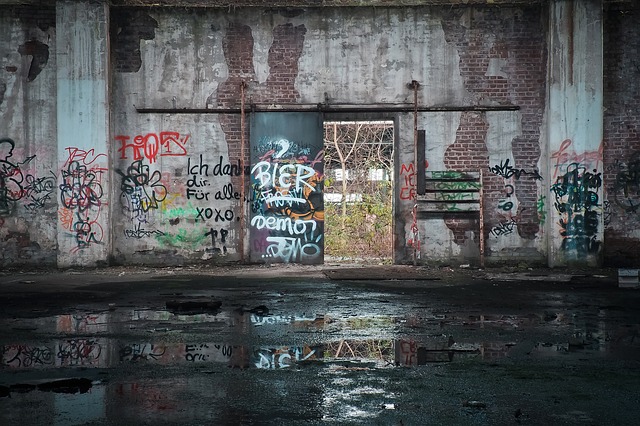A post-West world order?

Russian Foreign Minister Sergey Lavrov said something startling last month at the Munich Security Conference. He rejected, explicitly, the so-called ‘liberal world order’, asserted that ‘the post-Cold War order’ had come to an end and called, instead, on ‘leaders with a sense of responsibility’ to support, in its place, what he called a ‘post-West world order’.
Lavrov’s remarks were reported, of course, but were swamped in the issue of the day in Munich. European leaders in Munich wanted reassurances from the new US Vice President, Secretary of State and Secretary of Defense that President Trump’s deeply unsettling comments about the security relationship with Europe—particularly about NATO’s continued relevance—didn’t foreshadow a major shift in US policy.
Such reassurances were given and cautiously welcomed. But, in doing so, Secretary Mattis observed that, should other NATO members not increase their defence expenditure significantly, the United States might need to ‘moderate its commitments to the alliance’. So the US threat remains.
It’s a fair cop though: in 2016 only 5 members, led by the US, met or exceeded NATO’s defence expenditure target of 2 per cent of GDP; the US already spends almost double the NATO target, even before the huge increase President Trump is seeking. Some Europeans, including the Germans (only 1.2 percent of GDP on defence), have accepted that they have to bear more of the burden but they’re highly unlikely to increase defence expenditure in the sort of timeframe that Trump is expecting.
Of course, Lavrov’s comments reflect a blatantly Putin/Russian agenda that’s very alarming by itself. But, faced with disarray, things are changing in the West, especially in Europe. Many Western governments are also redefining—or rather being forced by international uncertainty and strong popular opinion to redefine—how they view the post-Cold War global order.
In particular, we’re seeing a reassertion of national sovereignty—and the absolute primacy of the pursuit of each country’s national interests—at the expense of accepted institutions.
Brexit is an obvious example of this. President Trump’s strong ‘America first’-based approach—driven by the wave of popular fear, frustration and xenophobia that resulted in his election—is another. His announcement of a significant boost in defence expenditure is a reassertion of US muscle but overwhelmingly only in the service of direct US—not necessarily Western—interests. As the New York Times described it recently, it is ‘raw power as a means and an end’ that is ‘synonymous with America’s standing in the world’.
Support for the European project, at the very heart of the post-World War 2 security framework, is under great strain; there’s little appetite for more integration. On the contrary, the chaotic response by EU members to Brexit and the many other serious problems Europe is facing has revealed major differences of view about the way ahead and eroded confidence among Europeans in the EU and its institutions.
This had swept a series of Trumpian governments into power in Europe long before Trump. Listen carefully to what the Polish and Hungarian governments, both conservative nationalists, are saying and you will get a flavour of this disillusionment. Poland would like a complete overhaul of the EU; Hungary wants integration reversed.
None is suggesting the demise of the EU. But there’s a broad sense that power must be returned more to member governments, with the EU becoming a group of individual countries pursuing their own national interests together but much more loosely. And some are saying that they do not want an EU dominated—after Brexit and because of its size and strength—by Germany.
Although there’s been, post-Trump, a rare debate in Germany about whether it should take a much more substantial leading role in the West, Chancellor Merkel believes that what is needed is more Europe, not less. Integration, the Germans would say, has been half-hearted and slow and needs turbocharging.
It is a measure of the dissent within the EU that the ‘big four’ leaders (Germany, France, Italy and Spain) have just had to concede a ‘multi-speed’ European Union, something unthinkable a few years ago.
The Chancellor and her Social Democrat opponent—the former President of the European Parliament, Martin Schultz—also must deal with a populist party of Germany’s own, in the form of the Alternative for Germany. So, with bells on, do France and the Netherlands. It’s worth noting that, at the time of writing, although still to everyone’s relief the largest party in the Netherlands Parliament, Dutch Prime Minister Rutte lost about 10 seats in the 15 March elections, while Geert Wilders’ party gained seats.
So, although it would be easy to exaggerate all of this, the fact is that the traditional concept of the West is under severe challenge on a range of fronts. The West has rarely been so divided and there is a strongly populist and nationalist element in play that is causing great readjustment and reflection. But, unless the West gets its act together, all of this sounds a little bit like the chaos that might lead to the kind of ‘post-West world order’ Lavrov self-servingly describes and Russia is doing its best to achieve.